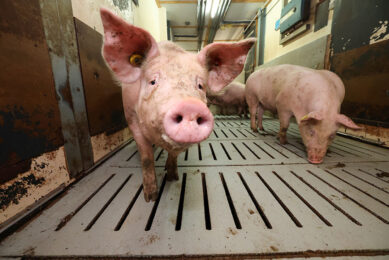Pig Veterinary Society responds to monophasic Salmonella strain
The British Pig Veterinary Society (PVS) has put the novel monophasic Salmonella strain into a broader context, emphasising the coming and gong of strains over the years – and that best Salmonella control can be done while cooking.
The novel monophasic Salmonella typhimurium bacteria received some attention earlier this week when the Soil Association, a British organisation in favour of organic farming, had urged for a panel to review current information and urged the British minister for environment to take action against this ‘superbug’, quoting from European Food Safety Authority reports and scientific research.
Pig Veterinary Society
On behalf of the UK Royal Veterinary Society, Dr Steven McOrist, Nottingham University, commented: “Salmonella and other related coliform strains found in pigs regularly change and move between many sources from the environment, such as birds, onto farms. Regarding the new monophasic strain, other similar strains have come and gone across Europe in the past 20 years. It is not clear if this strain is actually present at all in UK pigs – it therefore may not be a priority for UK government resources.
He continued to say: “Outdoor and organic pig farms regularly show higher levels of Salmonella in their livestock than animals housed indoors on slatted floors. The main point of control of all strains of Salmonella in the food chain is at final processing points, such as the slaughterhouse and in the kitchen, with proper safe cooking and cold food preparation methods.”
EFSA
Quoting the European Food Safety Authority (EFSA), the Soil Association wrote in a press release that the strain has abilities to cause infections and ‘a particularly high attack rate in children and old people’, leading to ‘an unusually high rate of hospitalisation’. “It is also highly resistant to antibiotics, limiting treatment options.”
Related websites:
• European Food Safety Authority (EFSA)
• Pig Veterinary Society (PVS)
• Soil Association











